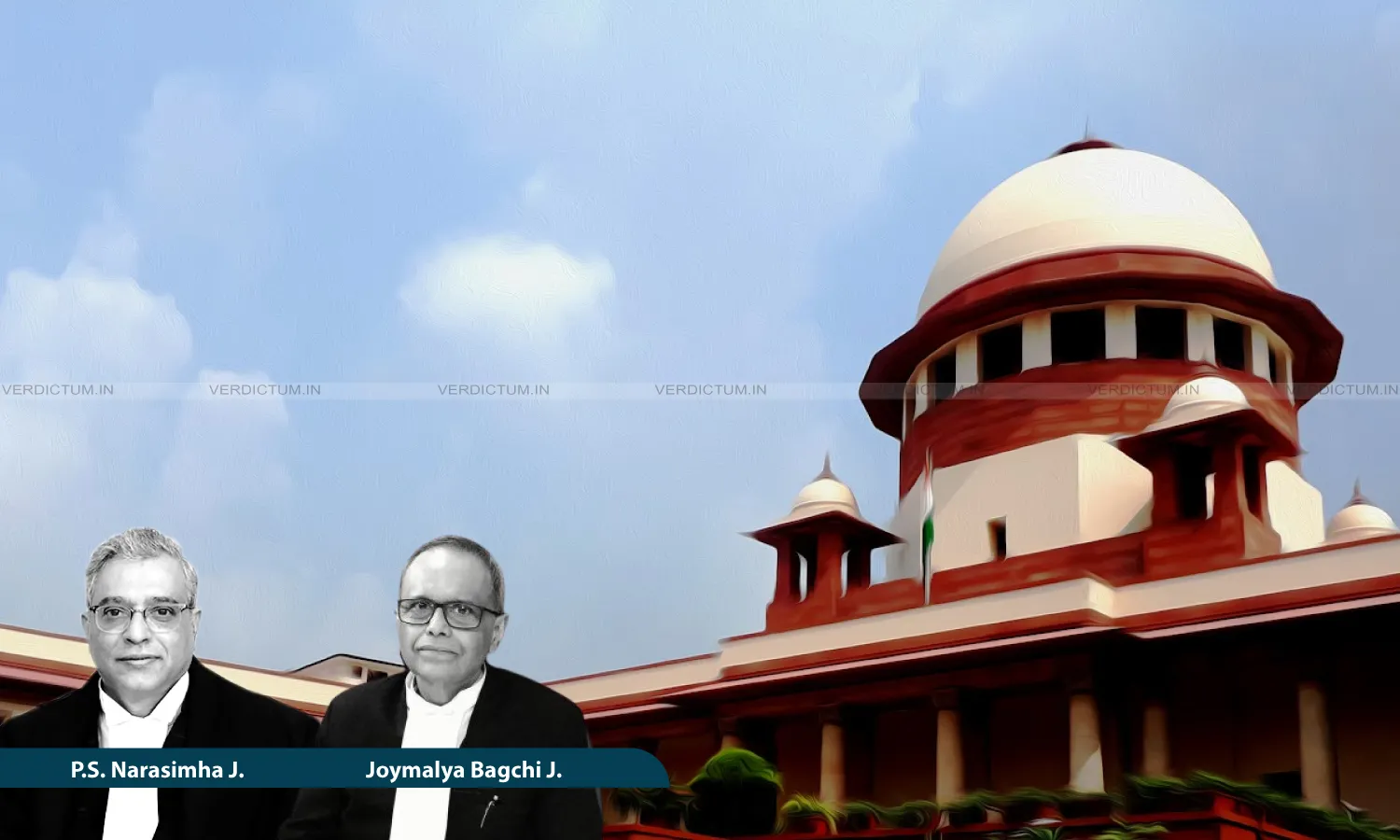Sporting Facilities & Opportunities Must Not Be Concentrated In Hands Of Urban Economic Elite: Supreme Court
The Supreme Court emphasised that it should be the deeper Sadhana (endeavour) of the State, and it is also our Constitutional duty to ensure that sporting facilities and opportunities flourish with institutional efficiency, integrity, professionalism, and expertise.

Justice P.S. Narasimha, Justice Joymalya Bagchi, Supreme Court
While directing the administration of All India Football Federation (AIFF) to adopt the draft Constitution, the Supreme Court remarked that sporting facilities and opportunities must not be concentrated in the hands of the urban economic elite.
The Court was hearing Civil Appeals filed against the Order of the Delhi High Court, which set aside the results of the AIFF’s elections on grounds of non-compliance with the sports code and other regulations.
The two-Judge Bench comprising Justice P.S. Narasimha and Justice Joymalya Bagchi observed, “It is also necessary to ensure that sporting facilities and opportunities are not concentrated in the hands of the urban economic elite and that the revenues from sporting events, intellectual property and media rights are so distributed to subserve and encourage accessible and affordable sport in our country.”
The Bench emphasised that it should be the deeper Sadhana (endeavour) of the State, and it is also our Constitutional duty to ensure that sporting facilities and opportunities flourish with institutional efficiency, integrity, professionalism, and expertise.
Brief Facts
Advocate Rahul Mehra i.e., the Respondent, had preferred a Writ Petition raising questions on the working of various sports federations and their election process. He specifically prayed for a direction to postpone or stay the proposed elections to the various offices of the AIFF, as the elections were allegedly being held in violation of NSC 2011. Vide the impugned Order, the High Court set aside the results of the elections of the AIFF on grounds of non-compliance with the sports code and other regulations. Hence, this was under challenge before the Apex Court.
Court’s Observations
The Supreme Court in view of the above facts, said, “Unlike rights that can be enforced through law, fraternity is not amenable to judicial command; it must be nurtured through lived experiences of unity, trust, and shared endeavour. National, international, regional or even mohalla sports in India serve as the Karmabhumi where cohesion and collective purpose take tangible form. They bring together individuals from diverse social, linguistic, and cultural backgrounds under a common pursuit, embodying the Constitutional value of fraternity. Here, individual and collective aspirations find a way to coalesce.”
The Court noted that on the field, teamwork compels individuals to set aside personal distinctions and work together, cultivating habits of cooperation, solidarity, and mutual respect and hence, accessibility of sports is important, for when opportunities to participate are open to all— irrespective of race, caste, religion, sex, or economic status—the unifying power of sport is amplified.
“This inclusiveness ensures that sports become not a privilege of the few but a medium through which fraternity is strengthened across society. In this way, sports operationalise what the framers envisioned: an intangible yet indispensable force that holds us together through shared effort and common purpose”, it added.
The Court further observed that it is high time that we recognize that sporting “facilities and opportunities” are “material resources of the community”, and their organizers are “the institutions of the national life”.
“As “places of public resort”, sporting institutions and bodies must remain accessible, not just for pursuing sport, but also for its administration”, it also said.
Conclusion and Directions
The Court, therefore, directed the AIFF administration to call for a special general body meeting and adopt the draft Constitution with the modifications.
“This shall be done at the earliest, preferably within 4 weeks. We are of the firm opinion that the Constitution, once adopted in terms of Article 84, will mark a new beginning for Indian football and take the sport to greater heights”, it added.
The Court remarked that our country is brimming with promising sporting talent which seeks suitable avenues and organisational support and we need to channelise this talent efficiently – from village fields to international platforms.
“We believe that the Constitution of AIFF is an important structural foundation in this regard and the stakeholders of Indian sports will have an important role in ensuring that Indian football remains thrilling, competitive and value oriented and continue to make its mark in the national and international landscape”, it concluded.
Accordingly, the Apex Court directed the AIFF to adopt the draft Constitution.
Cause Title- All India Football Federation v. Rahul Mehra & Ors. (Neutral Citation: 2025 INSC 1131)


